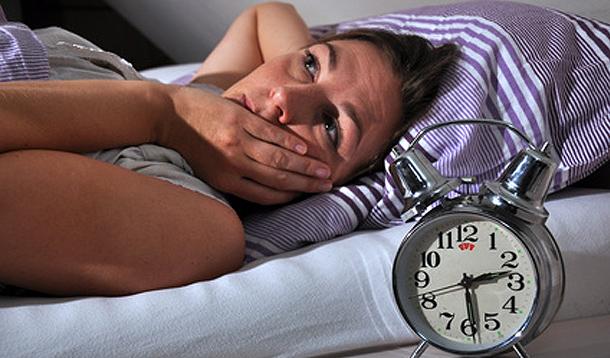
It’s been going on for months, if not years. It’s talked about in my Twitter feed, on Facebook, at the coffee shop, at school drop-off and pick-up. People everywhere seem to be screaming: “I’m just not sleeping and I’m sick of it!”
I’ve written before about Relaxation and Meditation for Sleep. But the issue of sleep — or rather, the lack of it — keeps coming up.
As a parent of young kids, interrupted sleep is often unavoidable. But what happens when the kids are sleeping through the night, and you’re still not? Constantly feeling tired is no fun, and neither is complaining about constantly being tired. But before you reach for those pills or night-time sleep aids, why not try some simple and natural solutions to help you get some zzzzz’s?
Here are the top three complaints I hear regarding sleep, and some tips and techniques I’ve used to deal with them:
“My mind won’t shut off. As soon as I close my eyes, I start to worry. I’m thinking of all the things I haven’t finished today or the to-do lists for tomorrow.”
Recommended course of action: Meditate. Meditate. Meditate. I often hear in response to this, “I can’t meditate, I can’t turn my mind off.” The idea of meditation isn’t to completely turn the mind off. We will never totally shut off our thoughts. Meditation teaches to see and accept the patterns of the mind, to become aware of the power we allow our thoughts to have over us. We can –with time and practice- learn to lessen the volume of our thoughts, to distance ourselves from the narrative of our minds, and let go of the mental clutter that keeps us awake at night.
Listen to a guided meditation or guided relaxation to allow your mind to focus on something other than your to-do lists as you prepare for sleep.
Also ask yourself: Are you on the computer/tablet/phone or watching television right before bed? This kind of visual stimulation doesn’t help if you are a “night mind-racer.” Try to cut out technology at least 30-60 minutes before bed.
“My body just feels wired. When I lie down, I get anxious, and I feel like my body is still buzzing from the day. Or I get achy and find it difficult to settle down and get comfortable.”
Recommended course of action: Do some gentle yoga to soothe the body, followed by a relaxation meditation. There are a couple of techniques you could use — autogenic relaxation technique or progressive muscle relaxation. Both encourage a deep mind-body connection. By bringing our awareness to each part of our body and encouraging it to release, we can calm our central nervous system and physically relax our body into a state ready for sleep.
To listen to a guided relaxation, click on the highlighted words for either an autogenic relaxation or a progressive muscle relaxation podcast. Or you can read Dr. Kim Foster’s instructions on progressive muscle relaxation.
Also ask yourself: Are you drinking caffeine or alcohol that could be disrupting your body’s ability to relax? Have you eaten a heavy meal or exercised too close to the end of the day? Try to avoid stimulating the body with food/liquid or heavy exercise too close to bedtime.
“I have no trouble falling asleep, but I wake up in the middle of the night. That’s when my anxiety starts, or the worries seep into my head, and I just can’t get back to sleep.”
Recommended Course of Action: Try a deep belly breathing exercise, followed by a meditation or relaxation technique.
Deep Belly Breathing. Bring your attention to your breath by placing your hand on your belly. Let your hand rise and fall as you focus on your breath coming in and out of the body. Allow the exhalation to be longer than your inhalation. (i.e., If you inhale to the count of four, exhale to the count of six, seven or eight). Do this for 5-10 minutes.
It’s easy to put pressure on ourselves to fall back to sleep because, “Goddamnit I have to be up again in a couple of hours, I am going to be so tired. This can’t happen again.” But the more we get worked up about sleep, the more elusive it can be. While it may not seem like the same thing as dreamland, being in a relaxed or meditative state is still good for the body. We are still resting. And the more relaxed and rested we are, the more likely we are to actually fall back to sleep.
While these recommended techniques have worked for many a night mind-racer, a resistant body and a middle-of-the-night waker, there is no magic formula that works for everyone, and the environment we create for ourselves around our sleep habits is crucial. It is also important to note that none of these are a quick fix. It might take a few days or weeks to see the results in our sleep behaviour.
But, at the very least, we will have the tools and know various techniques to help the body and mind come into a calm, relaxed state.
Do you have any sleep rituals that help ease you into dreamland?